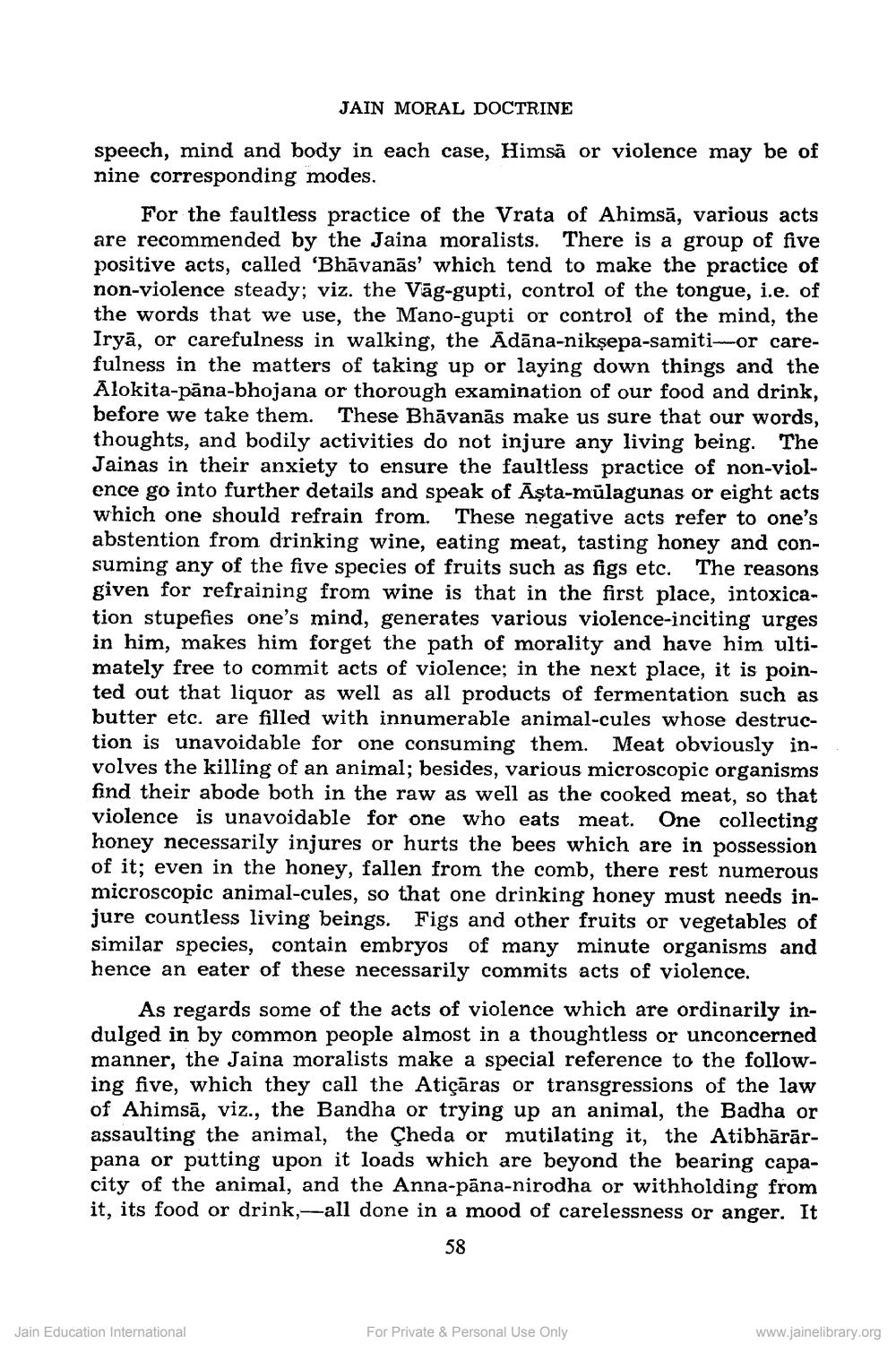________________
JAIN MORAL DOCTRINE
speech, mind and body in each case, Himsā or violence may be of nine corresponding modes,
For the faultless practice of the Vrata of Ahimsā, various acts are recommended by the Jaina moralists. There is a group of five positive acts, called 'Bhāvanās' which tend to make the practice of non-violence steady; viz. the Vāg-gupti, control of the tongue, i.e. of the words that we use, the Mano-gupti or control of the mind, the Iryā, or carefulness in walking, the Ādāna-niksepa-samiti-or carefulness in the matters of taking up or laying down things and the Alokita-pāna-bhojana or thorough examination of our food and drink, before we take them. These Bhāvanās make us sure that our words, thoughts, and bodily activities do not injure any living being. The Jainas in their anxiety to ensure the faultless practice of non-violence go into further details and speak of Āşta-mūlagunas or eight acts which one should refrain from. These negative acts refer to one's abstention from drinking wine, eating meat, tasting honey and consuming any of the five species of fruits such as figs etc. The reasons given for refraining from wine is that in the first place, intoxication stupefies one's mind, generates various violence-inciting urges in him, makes him forget the path of morality and have him ultimately free to commit acts of violence; in the next place, it is pointed out that liquor as well as all products of fermentation such as butter etc. are filled with innumerable animal-cules whose destruction is unavoidable for one consuming them. Meat obviously involves the killing of an animal; besides, various microscopic organisms find their abode both in the raw as well as the cooked meat, so that violence is unavoidable for one who eats meat. One collecting honey necessarily injures or hurts the bees which are in possession of it; even in the honey, fallen from the comb, there rest numerous microscopic animal-cules, so that one drinking honey must needs injure countless living beings. Figs and other fruits or vegetables of similar species, contain embryos of many minute organisms and hence an eater of these necessarily commits acts of violence.
As regards some of the acts of violence which are ordinarily indulged in by common people almost in a thoughtless or unconcerned manner, the Jaina moralists make a special reference to the following five, which they call the Atiçāras or transgressions of the law of Ahimsā, viz., the Bandha or trying up an animal, the Badha or assaulting the animal, the Cheda or mutilating it, the Atibhārārpana or putting upon it loads which are beyond the bearing capacity of the animal, and the Anna-pāna-nirodha or withholding from it, its food or drink,—all done in a mood of carelessness or anger. It
58
Jain Education International
For Private & Personal Use Only
www.jainelibrary.org




